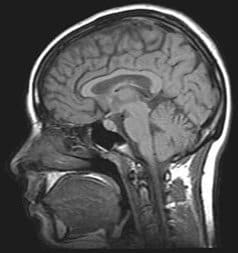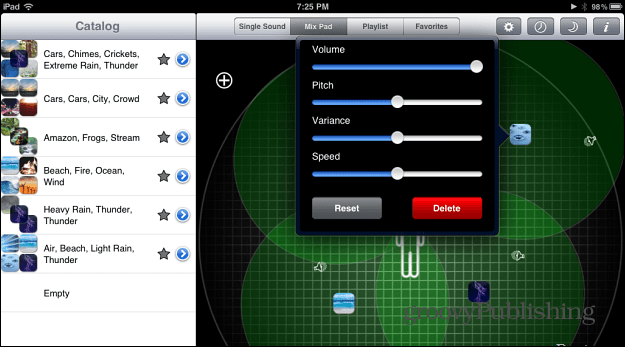The hot button issue in the news these days is the potentially insidious effects of smartphones on our most human faculties: our memory, our social skills, our attention spans, our physical fitness, even our ability to be ourselves. This is something that mothers and scientists have been telling us about “screen time” for decades: TV rots your brain, video games warp you into mass murder, and dating robots will destroy civilization as we know it. But the way I see it is this: Social media and the Internet are part of the fabric of modern society. Our phones are an essential part of participating in culture and business as much as cars and trucks are. Mobile technology and social media are merely gateways to a vast universe of different people, groups, games, movements, philosophies, and applications. Where you fly your spaceship throughout these galaxies is totally up to you. I’d like to argue that smartphones, tablets, websites, and social media can actually improve our brains, our bodies, and our emotional intelligence. And there are a few apps that prove it. In this roundup, I’ve pulled together a few choice apps that take those smartphone scare tactic headlines and turn them on their head by doing exactly the opposite of what the experts say technology will do to your soft malleable brain.
Lumosity on Your Smartphone: Enhance Memory and Attention
Headline: Is Social Media Shortening Our Attention Span? This is the classic grievance against gadgets: getting a jolt of instant gratification every time you look at your phone is wrecking our motivation to engage in long form media or experiences, such as books, magazine articles and actual conversations with people in real life. Smartphones are dumbing us down to news feed reading machines, mindless swipers looking for the next pic to like or listicle to skim. In fact, some studies go as far as saying that screen time is causing ADHD.
Lumosity, however, is an app that is designed to rebuild those faculties by enhancing your memory and attention. How do they do that? Believe it or not, it’s video games. These aren’t just any old computer games, though. These are exercises that have been designed by neuroscientists to “improve core cognitive functions”. Backed by the Human Cognition Project (HCP), Lumosity leans on the very same concept of neuroplasticity that the sensationalist headlines tout as wired humanity’s downfall. The research highlights the importance of neural pathways, which determine your thoughts, emotions, insights, and impulses. Like your muscles, these pathways will be pruned away or strengthened based on overuse or underuse. Basically, Lumosity is designed to “strengthen and stretch your brain” to improve a number of cognitive functions, including:
Memory: recalling the location of objects, remembering names after the first introduction, learning new subjects quickly and accurately, keeping track of several ideas at the same timeAttention: maintaining focus on important tasks all day, improving productivity and precision at work or home, concentrating while learning something new, avoiding distractionsSpeed: decision-making in time sensitive-situations, speeding up cognitive processes, adapting to changing environments, reacting quicklyFlexibility: communicating clearly, thinking outside the box, avoiding errors, multi-tasking quickly and efficientlyProblem-solving: dissecting complex arguments, making quick and accurate estimations, calculating figures in your head, determining the best course of action
Lumosity is a pay site (about $14.95 a month), but it has a free version for you to try it out. After inputting my age and my goals, Lumosity created a personalized training plan for me and estimated that I could improve by 92% in just a few weeks. Which either means I am currently a complete wreck, or they are just really confident in their product. Check it out at Lumosity. Similar apps: Fit Brains, PositScience BrainHQ, Memory Trainer (Android), Brain Fitness Pro
OhLife: Write in private about your life
Headline: How gadgets and the internet are turning us into a nation of emotional basket cases Social media is apparently the perfect breeding ground for narcissism, prejudice, insecurity, and keeping up with the Jones’ on a humungous scale. It seems that knowing thy neighbor via News Feed can quickly become an impediment to knowing thyself. We become absorbed with the ego strokes that a Like or upvote gives us and we lose sight of what really makes us tick and what’s really important in our lives. Or so the studies say.
OhLife gives you an opportunity to unload some of that toxicity in a safe place. Unlike your Facebook wall or a personal blog, OhLife invites you to privately journal your day-to-day. It does so in a simple, yet effective way. Every day, the application emails you with a single question: “How’d your day go?” You reply with as much as you want and hit send, then OhLife keeps it in a private collection for your perusal at a later date. Every now and then, OhLife will send you a blast from the past—a random entry from the vault to see what was going on in your mind back then. It seems like an overly simplistic concept, but I’ve tried it and it works. It’s funny how we find time to answer every single text message, email, Facebook wall post, and blog comment in a day. But we never set aside time for just 15 minutes of introspection and personal recap. By popping up in your inbox, OhLife gets thrown into that same bucket of things that we habitually respond to. And because it’s private, it frees us to be more open and honest than we might be if we were posting it on our News Feed. I recommend combining OhLife with the morning pages or 750 words a day concept. While seemingly a tool for writers, the practice of writing out three pages worth of whatever is in your head has proven useful for business professionals, painters, scientists, homemakers, etc. The idea is that it clears your mind of all the junk and gives the really good ideas license to flow freely. Get OhLife. Similar apps and websites: 750words.com, Penzu.com, NaBloPoMo, Day One
Headspace: Mindfulness in a stressful world
Headline: The always-on culture: smartphones, stress, and suicide In a similar vein to losing ourselves in the social milieu, smartphones can be an agent of overwhelming excess. For those who tether themselves to work or family drama via their phone, the phone can be a hotline to anxiety. The key to keeping a cool head in a stressful environment is practicing mindfulness. That is an awareness of your thoughts and the ability to overcome the delusions that may cloud your judgment. Mindfulness is like a muscle, and meditation strengthens it.
Meditation apps tend to be rather simple. After all, all the work goes on in your brain. But a nice app design and a solid program make mindfulness training easier to pick up. I recommend Headspace (on-the-go), which offers a free 10-day program. Similar apps: Mindfulness Meditation (Mental Workout), Omvana, Relax Completely (Android)
Sleep Cycle: Sleep Better, Feel Rested
Headline: Light from electronic screens at night linked to sleep loss Screens keep us awake. Partially because of the blue light that hinders melatonin production, but also because they stress us out or jolt us full of adrenaline when we are lying in bed or on the couch. This is all part of the phone’s master plan. It doesn’t want you to put it down and go to sleep. It wants you to play with it forever and ever and ever.
There is one app, though, that does want you to get a good night’s rest. It’s called Sleep Cycle. Sleep Cycle works (I’m assuming by magic) by tracking your sleep cycles and letting you sleep through the deep sleep phases and waking you up during the light sleep phase. This is important because, according to science, if you wake up during the light phase, you’ll feel great, but if you wake up during the deep phase, you’ll feel like a zombie. Because sleep cycles last about 90 minutes, the Sleep Cycle alarm clock app can wake you up during the ideal time within a 30-minute window. So, worst-case scenario, you wake up a little bit earlier than usual. But you’ll feel a million times better than if you would’ve snagged 15 more minutes of sleep, but slipped into another deep sleep cycle. Sleep Cycle also helps by keeping nightly sleep logs, including when you went to bed, when you woke up, the quality of your sleep, and what you did before and after sleep. Try Sleep Cycle on your iPhone. Similar apps: FitBit, Sleepbot (Android/iOS), Beddit. Also, for getting that perfect ambiance noise while drifting off, check out White Noise from our friend Todd Moore at TMSoft it’s available on iOS, Mac, Windows, and Android.
Fooducate: Eat healthier
Headline: Waistlines of the World: The Effect of Information and Communications Technology on Obesity True, if we sit around chugging Mountain Dew and snarfing Doritos in front of the computer all day, we’ll get fat. But your smartphone can help you eat better in one of the places that matter the most: the grocery store. One of the things that I find most frustrating about the big food industry is that food labeling is an absolute joke. In most cases, the more health claims something has on the package, the less healthy it is. (“Methinks the ladyfingers doth protest too much.”) Reading the nutrition facts and ingredients doesn’t help much either. Is ferrous gluconate food or poison? Is cochineal extract some kind of antioxidant or is it squished bugs that’ll give me deadly hives? And I can never remember which is good fat and which is the bad fat. Fooducate is an app that simplifies all that by giving popular grocery store items a letter grade based on their nutrition. Simply scan a barcode and it’ll give you its grade, why it earned that grade (highly processed, lots of added sugar, deceptive advertising), and best of all, a list of better alternatives. Some of the grades are pretty surprising—I’ve spent upwards of an hour just plugging in random foods that I thought were healthy and being surprised. Ironically, the “Healthy Choice” Chicken Parmigiana ranks a low C (though the Healthy Choice Rosemary Chicken & Sweet Potatoes gets a B+). Fooducate also has fast food ratings, too, but this should be a no brainer: it’s all bad for you. Try Fooducate and demystify your food. While we are on the topic of waistlines, I wanted to throw out a few apps that are good for tracking exercise, too. These can be great motivational tools, so I included them in similar apps. Similar apps: MyFitnessPal, FitBit, Locavore, Seafood Watch, Don’t Eat That, MyPlate
Conclusion
Your smartphone is a tool. Whether you use that tool as a destructive distraction device or a constructive training tool is up to you. All the things that science says are damaging about your smartphone can also be beneficial. If you choose the right apps and use them the right way, your phone won’t have to be the smartest thing attached to your skull. Do you use an app that’s improving your mind, body, or spirit? Share with us in the comments. Also trying out Sleep Cycle….. What can I say, I’m a data freak and now I can track even more data while I sleep! Only problem, it’s probably going to tell me what I already know… ;) Turning it on… now! Comment Name * Email *
Δ Save my name and email and send me emails as new comments are made to this post.
![]()








